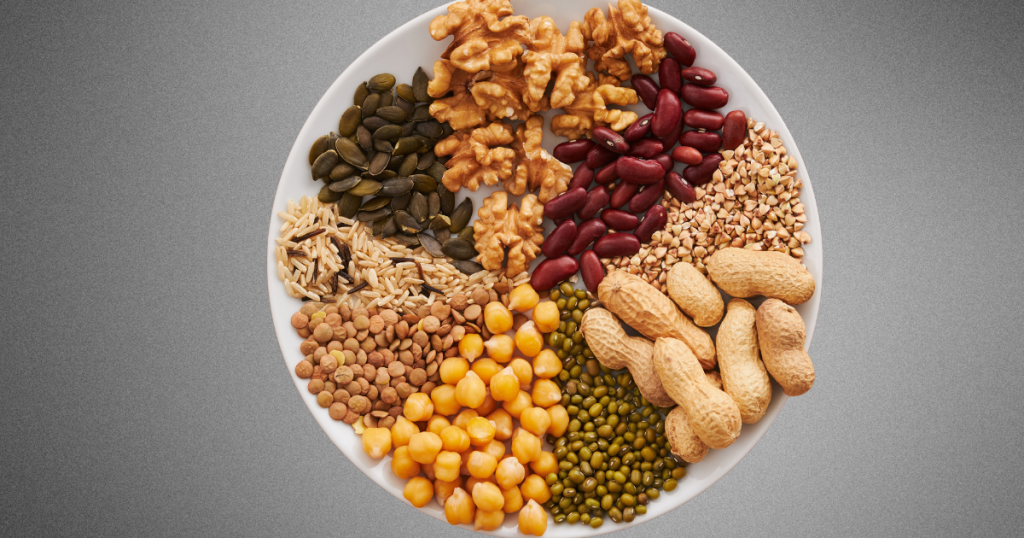In this article, we will reveal the top 10 foods that can effectively nourish the body of dementia patients and enable them to be better treated.
Table of Contents
ToggleImportance of Healthy Diet for Dementia Patients:
Proper nutrients are vital for individuals with dementia, as it can significantly impact their overall health. A well-balanced diet that includes essential nutrients, vitamins, and minerals can provide the following benefits:
- Prevent Weight Loss
- Support the Immune System
- Reduce the Risk of Infections
- Slowdown the Potential Risk of Cognitive Decline

10 Best Foods for Dementia Patients to Eat:
Here is a list of the 10 best foods that are important for individuals with dementia.
1. Fatty Fish:
Fatty fish like salmon, mackerel, and sardines are not just delicious, they are rich in omega-3 fatty acids, which are crucial for brain health. These omega-3s have anti-inflammatory properties and can help reduce the risk of cognitive decline associated with dementia, offering a ray of hope for improved cognitive health.
2. Leafy Greens:
Spinach, kale, and other leafy greens are packed with antioxidants, vitamins, and minerals that support brain function. They contain nutrients like folate, vitamin K, and lutein, which are linked to improved cognitive performance and a lower risk of dementia.
3. Berries:
Blueberries, strawberries, and other berries are high in antioxidants and flavonoids that can protect brain cells from damage and improve memory and cognitive function. Studies suggest that a diet rich in berries may help slow the progression of cognitive decline in dementia patients.
4. Nuts and Seeds:
Almonds, walnuts, flaxseeds, and chia seeds provide healthy fats, vitamins, and minerals that benefit cognitive function. These foods’ omega-3 fatty acids, vitamin E, and antioxidants can help reduce inflammation and support brain health.

5. Whole Grains:
Foods like brown rice, quinoa, and oats offer sustained energy and essential nutrients for brain health. The slow-release carbohydrates in whole grains can help stabilize blood sugar levels, essential for maintaining cognitive function throughout the day.
6. Lean Proteins:
Chicken, turkey, and tofu are excellent sources of protein that support muscle health and cognitive function. Protein-rich foods also provide essential amino acids for brain function and neurotransmitter production.
7. Fruits and Vegetables:
Vibrant fruits and vegetables like oranges, apple, carrots, and bell peppers provide a variety of vitamins, minerals, and antioxidants that can help reduce inflammation and support brain health. Eating a diverse range of produce can ensure a comprehensive intake of essential nutrients.
8. Healthy Fats:
Avocado, olive, and coconut oil contain healthy fats supporting brain function and overall health. These fats can help reduce inflammation and improve cognitive performance.
9. Herbs and Spices:
Turmeric, cinnamon, and ginger have anti-inflammatory properties that may benefit brain health. These herbs and spices can be incorporated into meals to add flavor and potential cognitive benefits.
10. Hydration:
Staying hydrated with water and hydrating fluids like herbal teas is a cornerstone of cognitive function and overall well-being. Dehydration can throw a wrench in brain function, so ensuring adequate hydration is a non-negotiable for dementia patients.
Recommended Diet Plan for Dementia Patients:
Here is a summary of the essential diet plan strategies for dementia patients:
1. Take Smaller and Frequent Meals: Dementia patients may have a decreased appetite or forget to eat, so providing smaller, more frequent meals and snacks can help ensure they get the necessary nutrients.
2. Create a Distraction-Free Dining Environment: Minimize distractions like TV or loud noises during mealtimes to help the person with dementia focus on eating and enjoy the experience.
Read More: How to Encourage Seniors with Dementia to Eat More
3. Provide Feeding Assistance: If needed, assist the person with dementia during meals by prompting them to eat, modeling eating behaviors, or feeding them directly to ensure they consume adequate nutrition.
4. Hydration: Take water and high-water content foods throughout the day to prevent dehydration, which can exacerbate cognitive and physical issues.
By implementing these diet plan strategies, caregivers can ensure that individuals with dementia maintain a balanced, nutrient-rich diet, contributing to improved cognitive function, physical health, and overall quality of life.

Conclusion:
Nutrient is a crucial aspect of the overall care of patients who are suffering from dementia. It has numerous advantages that go beyond just providing nourishment. By making mindful adjustments to their diet, individuals with dementia can potentially improve their cognitive function, well-being, and quality of life.
Want to learn more?
Reach us at wecare@considracare.com, or call us at 1-855-410-7971, and we will be happy to assist. Discover more tips in our information booklets or on our resources page.
FAQs:
1. How to live longer with dementia?
Embrace a healthy lifestyle and social engagement for longevity; seek support from caregivers and medical professionals.
2. How to improve quality of life with dementia?
Establish routines, provide emotional support, and engage in meaningful activities to enhance quality of life.
3. What makes a dementia patient happy?
Personalized care, positive interactions, and fostering a sense of belonging contribute to a patient’s happiness.
4. How to keep dementia patients busy?
Offer stimulating activities, hobbies, and cognitive exercises to keep patients engaged and fulfilled.
5. What are the three golden rules of dementia?
Practice patience, empathy, and adaptability in caregiving; prioritize safety, respect, and dignity.


